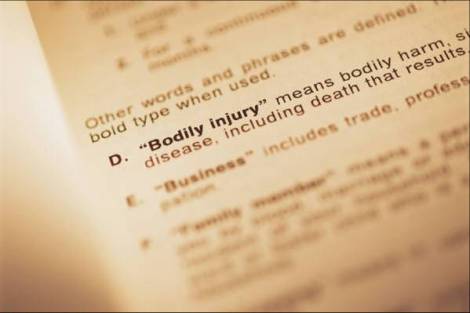One of the more important risk management concerns for my community association clients is the management of potential legal liability risks arising from special events. Whether an association hosts a special event itself or permits its members to use its facilities to host their own special events, there are a number of risk exposures to be considered and addressed in order to protect the event participants and the association. Stephanie Dufour’s blog post, Safety Considerations for Your “SPECIAL” Day, is an excellent overview of the risk management issues to be considered.
In addition to Stephanie’s excellent post, I offer the following, addressed to the risk management needs of the venue owner (typically, in my case, a community association):
- In her 2nd point, Stephanie points out important considerations for the event sponsor regarding location selection. For the property owner offering its facilities for use (a community association which permits use of its clubhouse for private parties, for example), a similar analysis is important. The type of use and number of participants for which your facility is safely suited should be carefully considered, and described in your lease, permit or use agreement. It should go without saying (but I’ll say it anyway ’cause that’s what we lawyer types so often do), that you should in fact have a written agreement for a member’s (or other third party’s) use of your facilities, and that agreement should cover the scope of permitted use, indemnity obligations, insurance requirements and liability waivers.
- In her 3rd point, regarding food service, Stephanie notes the importance of proper food preparation and handling. From the property owner’s perspective, if food will be sold by vendors at an event held at your facilities (an Octoberfest, for example), your written agreement for that event should include appropriate requirements pertaining to any government-required licensing or food handling procedures.
- Stephanie’s 4th point addresses risk management issues for events where alcohol will be served. Whether the facility owner is hosting such an event itself or is permitting another party to host the event, Stephanie’s suggestions regarding procedures to institute to ensure the responsible service of alcohol are important. In addition, liquor liability insurance coverage should be obtained (for a community association, this would typically be done via appropriate endorsement to the association’s commercial general liability – CGL – insurance policy) and, if alcohol is to be served by a third party host, by requiring appropriate liquor liability insurance coverage to be provided by the host via the property use agreement. The potential need for a temporary liquor license should also be considered. For example, a wine tasting event may require a one day liquor license. Information regarding liquor licenses for special events in California can be found here (scroll to the 3rd page).
- I cannot endorse strongly enough Stephanie’s comments concerning vendors/collaborative events (Stephanie’s 8th point). I would add only one thing to Stephanie’s comments – if there will be vendors (booths, entertainment, food, etc.) at your special event, which party will assume liability risks and provide insurance coverage should not only be discussed, but must be carefully memorialized in writing in a binding legal document.
- Regarding waivers (Stephanie’s 9th point), keep in mind that the law regarding enforceable terms, scope and format differs from jurisdiction to jurisdiction. In addition, there are specific legal issues pertaining to waiver and release agreements pertaining to minors. Do not rely on a form document found on the internet. Seek the assistance of an attorney licensed in your jurisdiction with experience addressing these issues.
- Similarly, laws vary from state to state regarding the meaning, scope and enforceability of indemnity agreements. You need an indemnification clause in any use agreement granting a third party permission to use your property; again, seek the assistance of an attorney licensed in your jurisdiction with experience addressing these issues to prepare your agreement, to ensure that indemnity obligations are addressed in a manner consistent with the law in your jurisdiction.
- Further to Stephanie’s 10th point, regarding photo/media releases, another issue to consider is how to protect your organization against potential breach/violation of copyright, license and/or publicity rights and similar issues. One scenario in which a community association may be vulnerable to such claims is when the association hosts outdoor concerts. Your contracts with live entertainment vendors must be written in such a way as to protect the association against such claims, particularly since such claims may not be covered by the association’s own insurance policies. It is also important to determine whether there is a sound ordinance controlling the allowable decibel levels of the music, and be sure to address such rules in the vendor’s contract as well. In my experience, such issues are rarely addressed in the entertainment vendor’s own contract (and when they are the issues are not addressed in a way which protects the association), so I would further add the recommendation that you have the association’s legal counsel review and negotiate the terms of that vendor’s contract as necessary.




